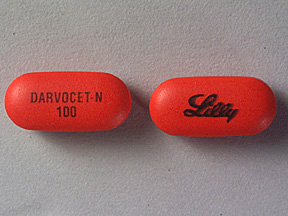The Maryland Daily Record has an article today by Lawyers USA writer Sylvia Hsieh on the expected wave of lawsuits involving Darvocet and Darvon. The gist of the article is that this is the next big thing: “Plaintiffs’ personal injury attorneys are gearing up to start an onslaught of litigation against makers of the popular painkillers Darvon and Darvocet.”
There is no question there will be a lot of lawsuits with very good cases. We are looking at Darvocet/Darvon cases and have a webpage devoted to these claims. But I really do not think this is the next big mass tort. I think there will be a small number of good cases and a lot of cases that go nowhere.
Why? Because it is not enough that a drug is defective. In these cases, Darvocet/Darvon (hereinafter “Darvocet” because I’m tired of writing Darvocet/Darvon) must be both the general cause and the specific cause of a plaintiff’s injuries.
General causation is proving that at recommended doses, Darvocet causes arrhythmias and cardiovascular problems associated with propoxyphene poisoning. By the time a trial rolls around in two or three years, I don’t think Daubert will be a problem on general causation. There was a recall for a reason. (Note: defendants don’t agree there was a recall – they call it a “withdrawal.” Whatever.)
But the vast majority will be a struggle on specific causation. A lawyer is quoted in the article as saying that QT prolongation is a “signature” injury that is caused only by propoxyphene and a few other pharmaceutical drugs. But I don’t think plaintiffs’ experts are fully developed on this point and I don’t suspect there will be thousands of serious injuries or deaths that can be clearly traced back to Darvocet.
Yes, this drug should have been pulled off the market over 30 years ago. But it has remained on the market for 30 years. The only new knowledge we have is that the drug has been taken off the market. I think we will find people died and were injured while on Darvocet that should not have been taking the drug. But I do not think the number will be in the thousands and I think plaintiffs’ lawyers may find a causation link difficult to prove because the plaintiff had other conditions that made them more susceptible to a heart injury. Remember, these patients were taking prescription painkillers for a reason, many of them for underlying conditions that have co-morbidity with a heart condition.
The best Darvocet lawsuits will be young people that did not appear to be at risk for a heart condition who were taking Darvocet as directed for a relatively minor injury that resolved. The worst Darvocet lawsuits will be the ones brought for patients who were long time users, taking more Darvocet than they should have been taking, and having other risk factors for heart disease or, better for Defendants, a preexisting heart condition. If there are an MDL and bellwether trials, plaintiffs’ lawyers will push hard to get the former to trial, and Defendants will be pushing just as hard to try the latter.
One caveat to my wisdom. After looking at the Vioxx cases, I reached almost the same conclusion, and those cases settled for like $5 billion. This could be a similar situation. But I don’t think so.
 Maryland Injury Law Center
Maryland Injury Law Center

